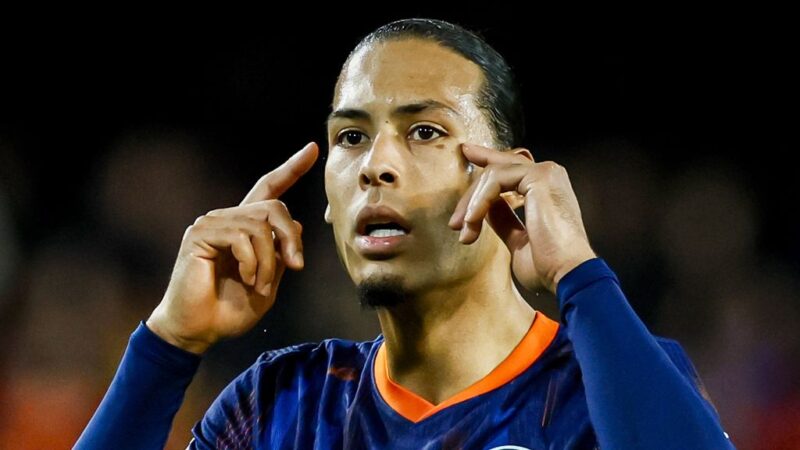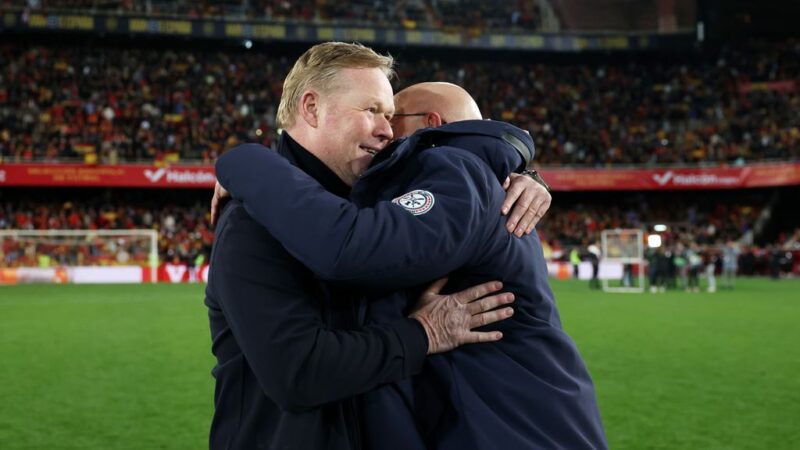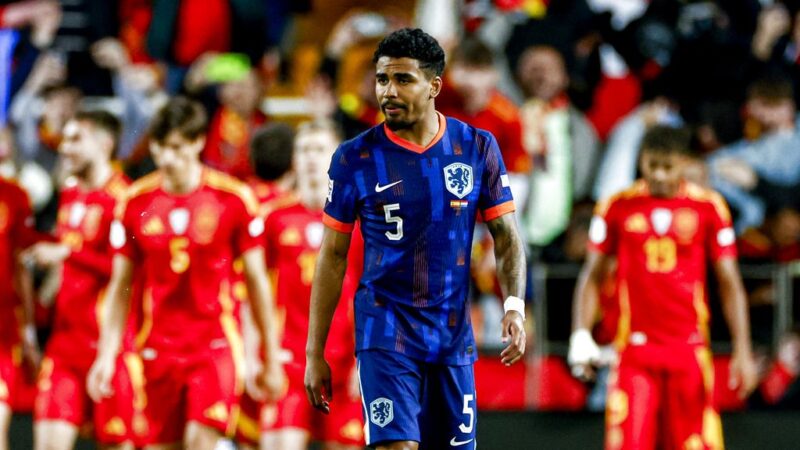England’s solution to soccer violence: mandatory seating and alcohol ban

NOS Soccer–
While on the Dutch soccer fields the incidents involving soccer supporters succeed each other in rapid succession, in England things seem to have been relatively calm in the soccer stadiums for years. And that while there the hooliganism was invented, so to speak, and soccer law is a lot milder than that in the Netherlands.
According to renowned English soccer journalist Phil McNulty, this is due to compulsory seating, keen camera surveillance, quick intervention in the case of offensive speech choruses and perhaps the most important difference from the Netherlands: no alcohol in the stands.
‘No recent events’
McNulty has seen footage of Davy Klaassen’s bloodied head. The Ajax midfielder was hit by an object thrown from the stands Wednesday night in the KNVB Cup semifinal between Feyenoord and Ajax.
“Actually, I don’t recall any recent incidents at our place of things being thrown onto the pitch at soccer matches,” said McNulty, who works for the public BBC. “That hasn’t happened for a very long time. However, at the beginning of this year at a game between Tottenham and Arsenal, there was a fan who attacked Aaron Ramsdale, Arsenal’s goalkeeper.”
That happened on Jan. 15 after the game, which Arsenal won 2-0 at Tottenham Hotspur Stadium. 35-year-old Joseph Watts came onto the pitch and kicked Ramsdale against his shoulder as the goalkeeper was in the process of removing his gear from the goal.
McNulty: “That fan got a four-year stadium ban, a 100-hour community service and he has to pay Ramsdale a hundred pounds in damages.”
“And when Tottenham play abroad, the police can temporarily confiscate his passport. He slipped out afterwards, but because there are sophisticated camera systems in every English stadium these days, they would have identified him in no time. That helps tremendously. You can’t do anything without it being caught on camera. The league and the clubs have invested enormously in that.”
McNulty finds it difficult to put his finger on why English soccer stadiums remain quieter than Dutch ones. “It’s a combination of things, I think. At our stadiums, you’re not allowed to drink alcohol within sight of the field. So you also can’t take cups of beer into the stands and throw them on the field, like you do.”
“And what has certainly had a positive effect is what we all seating Name it: everyone has mandatory seating. And at some clubs, fans of the visiting team sometimes have to wait half an hour before they can leave the stadium and take to the streets. Not that there are never incidents outside the stadiums, but it does help.”
What the English Football Association is keenly monitoring is CHANTING, freely translated: offensive talking points. McNulty: “At the match between Liverpool and Manchester United early last month, fans verbally clashed with each other. United supporters were referring to the Hillsborough disaster in 1989, in which 97 Liverpool fans lost their lives. At a moment like that, the speaker immediately asks for that to stop.”
Tougher crackdown on rioting
“I remember afterwards both trainers also condemned these talking points in statements,” McNulty continued. “Early this year, Chelsea fans chanted Always the victim, never your fault When they played against Liverpool. That too was immediately condemned sharply.”
“I think the league and the clubs are well on top of this. And what is also good: when there are riots between footballers on the pitch, action is taken faster and harder, for example by handing out fines. That’s where the aggression often starts, of course, and you want to nip that in the bud. Players should set a good example.”





